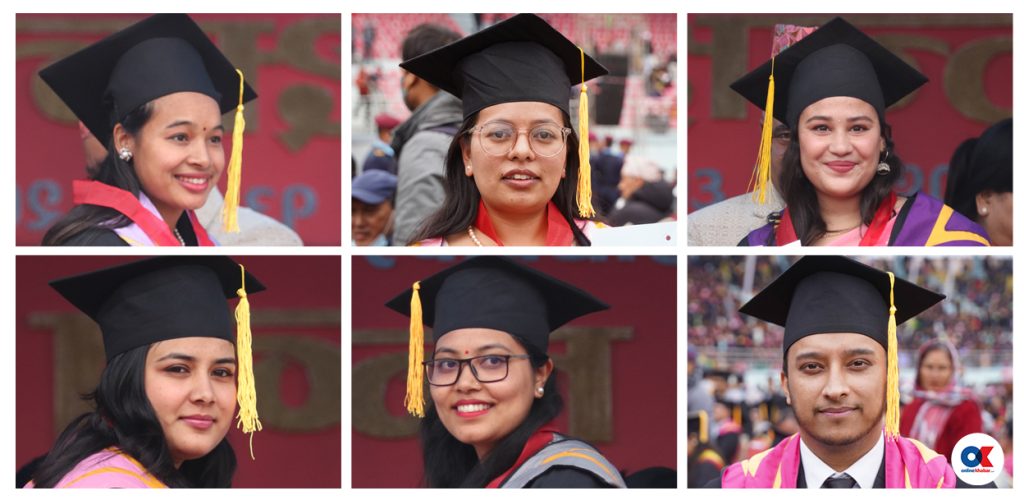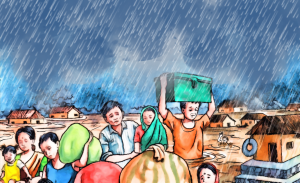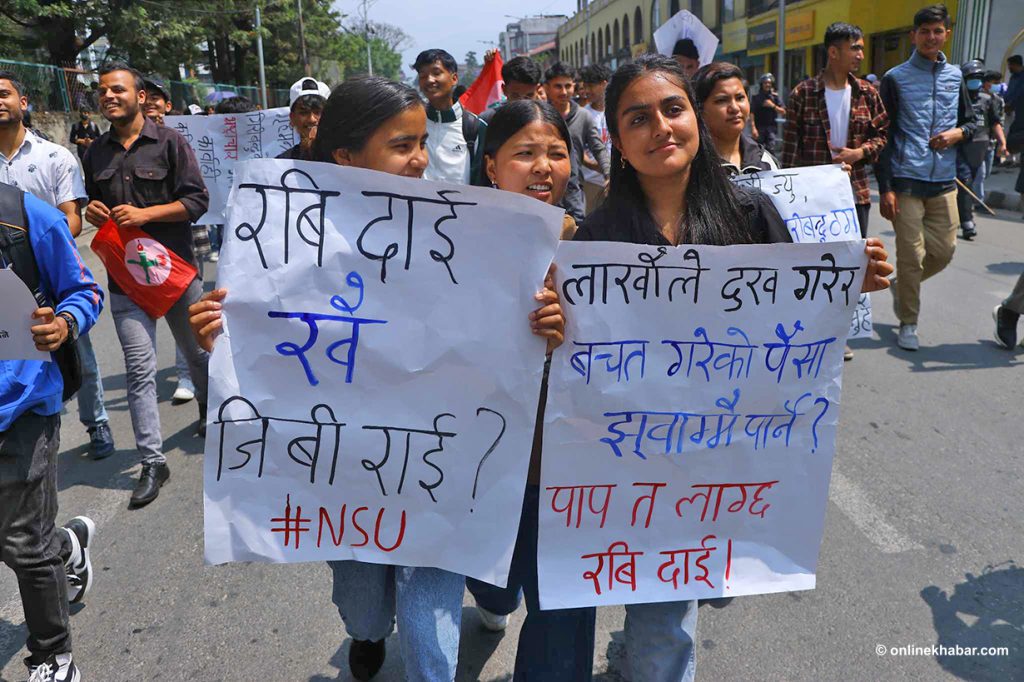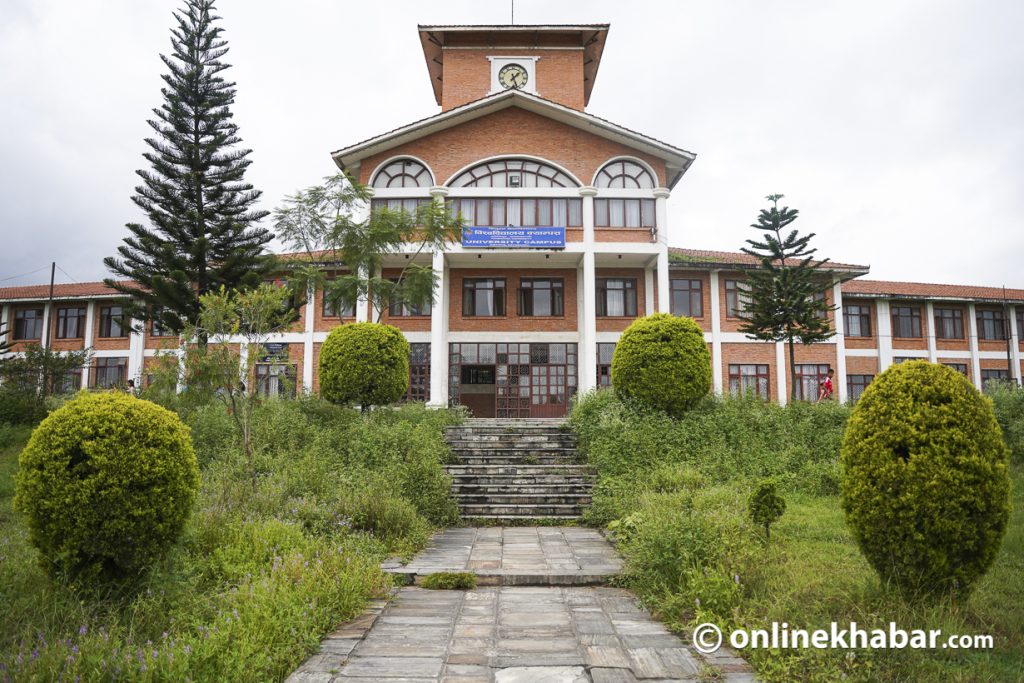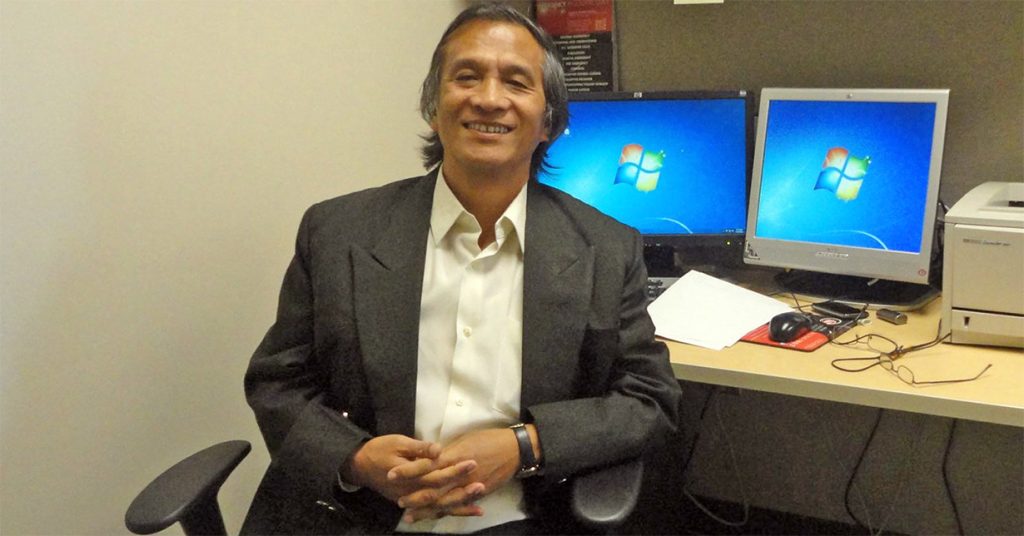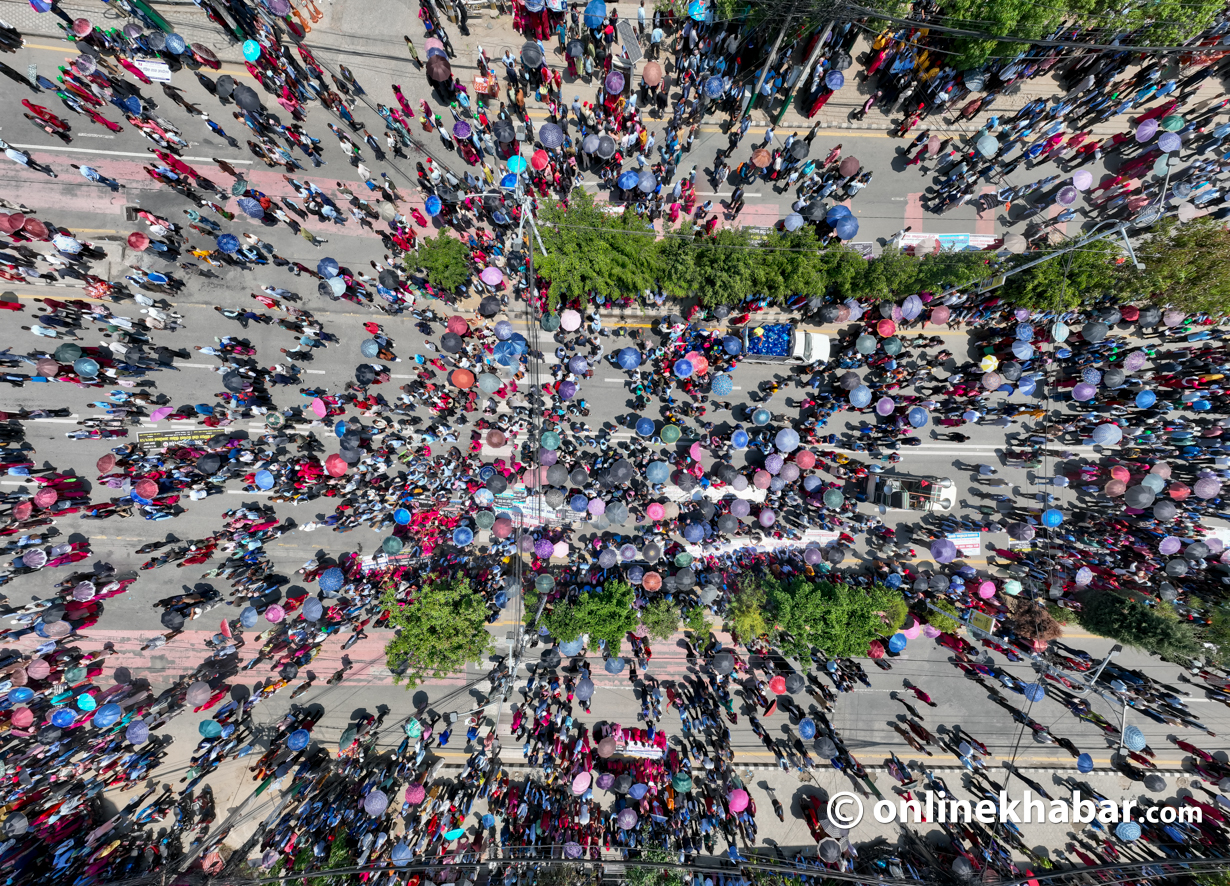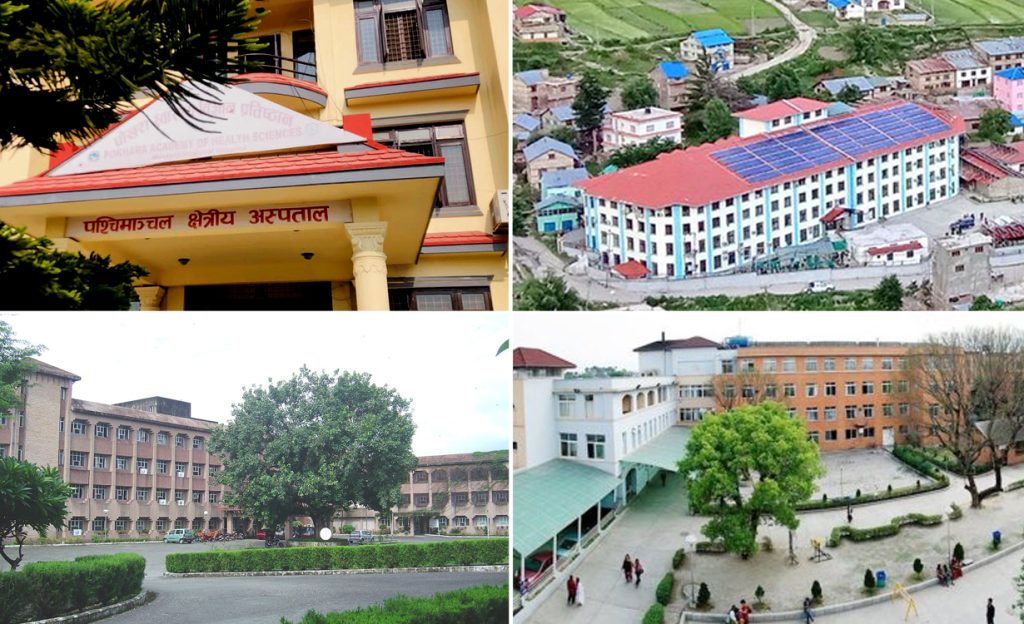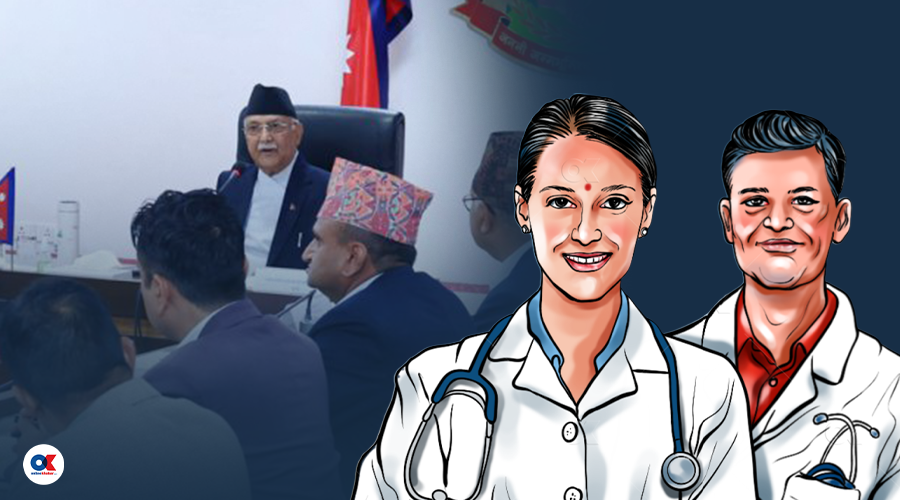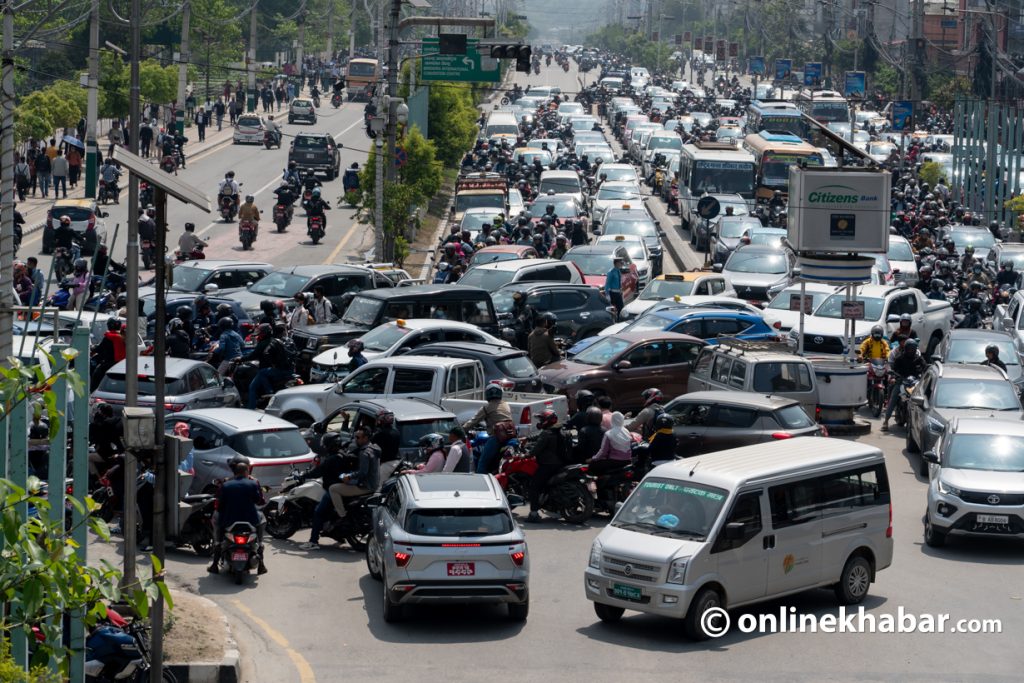
“For the last three years, I was expecting justice from the court. That was my only hope. But the government withdrew my case. Where do I go to seek justice now,” asked Prem Chalaune, from the premises of Kathmandu District Court.
In October 2020, assistant professor of Tribhuvan University, Prem Chalaune, was assaulted by seven students, including Hari Acharya and Yogendra Rawal, associated with the Nepal Students Union, the student wing of Nepali Congress, at campus premises.
He sustained critical injuries, including a fractured right leg and deep cuts on his head and left leg. He was admitted to the hospital for two months and walked with the help of crutches for a long time.
“All I see are nightmares nowadays. In the nightmares, I am straggled by three people who came into my room through the window. Then, I feel suffocated and start screaming in real,” says Chalaune.
The situation has taken a turn for the worse as the government has decided to withdraw his case. This development has intensified his concerns, causing him greater distress than before.
“I am constantly living in fear,” says Chalaune.
What happened?

Chalaune should be in class teaching. But the assistant professor, for the last three years, has been roaming around the court, looking for justice.
But, the government tried to block any legal recourse for him. The government was fighting the case on his behalf but without informing him, it abruptly withdrew the case drawing criticism from all sectors. As that happened, it left him hopeless as he was confused about where he needed to go to seek justice for what a few members of the NSU did to him nearly three years ago.
The process to withdraw Prem Chalaune’s case began last year. Acharya, Rawal, and five other students submitted an application to the District Administration Office, requesting the withdrawal of the case, even though no witness statements were presented.
The police investigations had already stated Acharya and Rawal were the masterminds behind the attack and they were accompanied by Dipak Raj Joshi, Rupesh Shah, Rabin Kumar Lama, Suyaj Shrestha and Niraj Rana Magar.
After Acharya and Rawal submitted the application to DAO, the Nepali Congress Kathmandu District Working Committee and Nepal Student Union, also submitted an application to the Peace, Security and Crime Control Section of the Ministry of Home Affairs, demanding it withdraw the case.
Following that, the Ministry of Home Affairs sent a letter to the Kathmandu District Public Prosecutor’s Office asking them to take necessary actions to advance the process of withdrawing Chalaune’s case, arguing that peace and security would be disturbed by not withdrawing the case.
Tek Narayan Pandey, the then Home Secretary, issued an order to the Kathmandu District Public Prosecutor’s Office, instructing them to take necessary action on the application submitted by the Nepali Congress Kathmandu District Working Committee. Bal Krishna Khand, a Congress leader, held the position of Home Minister during the ongoing process of withdrawing the case.
Both Khand and Pandey currently find themselves in police custody as they face accusations in the Bhutanese refugee scam.
Both Khand and Pandey are currently in police custody for being accused in the fake Bhutanese refugee scam.
Ever since the Patan High Court released Acharya, Rawal and the other six on bail of Rs 500,000 On February 25, 2021, Chalaune expressed concerns about his personal safety, indicating that he does not feel secure.
Following their release, Acharya and Rawal have asked Khand and other high-profile leaders to withdraw the case.
Wait and watch scenario

Chalaune is undergoing regular physiotherapy sessions. But he is frustrated as he is forced to spend his time in hospitals and courts instead of being able to focus on his teaching responsibilities.
Chalaune, who teaches Introduction to Sociology – Marxism and Neo-Marxism, found himself occupied with reading clauses and articles a year ago when he learned that his case was slated for withdrawal. Unfortunately, all his efforts were in vain as the government has decided to withdraw the case, thereby undermining his struggle.
“The government has politicised the crime and criminalised the politics,” says Chalaune.

With the government’s decision to withdraw the case, victims of criminal cases have been left disheartened, as it has undermined their confidence in the government’s commitment to support them.
In accordance with Section 116 of the National Civil Code Act, even if the government decides to withdraw the case, the relevant court should also issue an order for the withdrawal of the case.
But that has not happened yet.
After all these hurdles from the government, Chalune asks, “Where should I go to find justice?”
Chalaune has had a small respite as the Supreme Court, on June 22, issued an interim order telling the government not to withdraw Chalaune’s case.
Chalaune had gone to the apex court asking it to annul the decision taken by the government. He said that the government’s decision to withdraw the case was not logical and was of a nature to protect criminals, and demanded that the government’s decision should be stopped immediately.
On June 19, Chalaune took matters into his own hands has initiated a hunger strike in front of the Vice Chancellor’s office at Tribhuvan University.
However, on June 23, he dropped the hunger strike after the Supreme Court’s order. This decision, however, does not guarantee that his case will be prosecuted for further investigation.
Despite the desire of many people for him to resume his classes at the university, Chalaune finds himself caught in a constant cycle of going back and forth between the hospital and the court. He is still afraid as he continues to fight for his rights.
This story was translated from the original Nepali version and edited for clarity and length.







